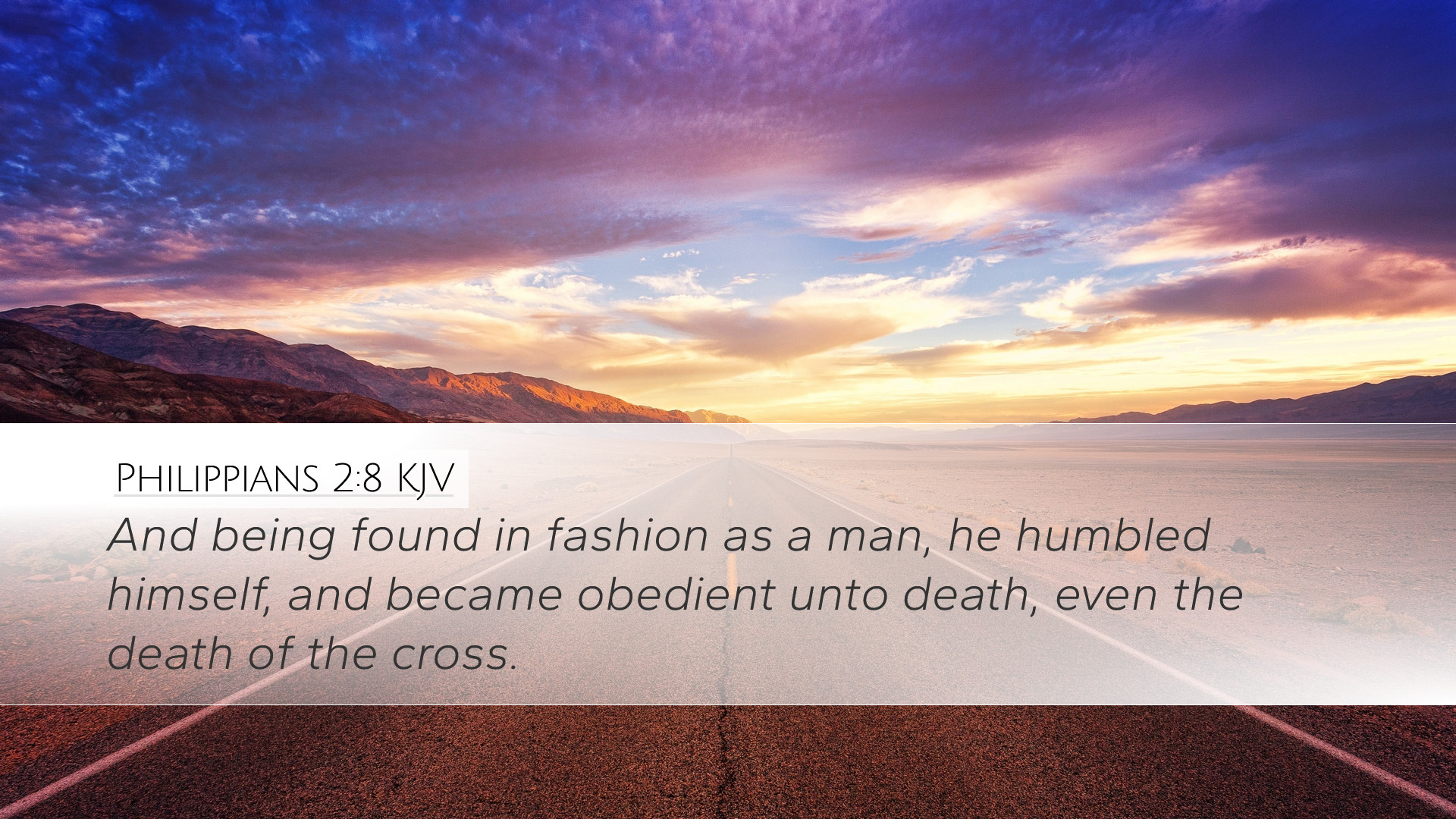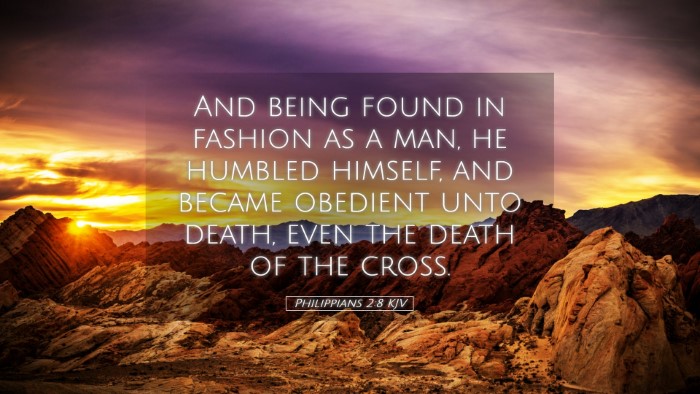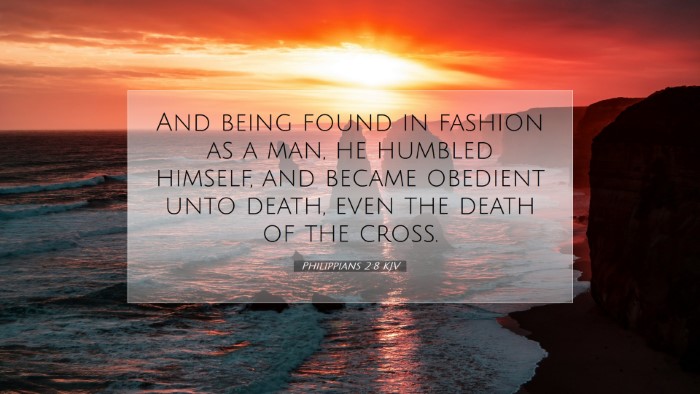Commentary on Philippians 2:8
Philippians 2:8 states, "And being found in appearance as a man, he humbled himself and became obedient to death—even death on a cross!" This verse presents a profound insight into the nature of Christ’s humility and obedience, embodying the core of His redemptive work.
Contextual Understanding
In the broader context of Philippians 2, the Apostle Paul calls the church to emulate Christ's humility, setting Christ as the supreme example. Paul outlines the need for unity and selflessness, urging the believers to serve one another in love. His description of the incarnation and obedience of Christ serves to reinforce this teaching.
Insights from Public Domain Commentaries
Matthew Henry's Commentary
Matthew Henry emphasizes the profound nature of Christ's humility. He notes that Christ, though divine, took on the form of a servant. This transformation is pivotal as it showcases not only the humility of Jesus but also the depth of His love for humanity. Henry highlights that Christ became obedient even to the point of death, which is indicative of the extent to which He was willing to sacrifice for the salvation of mankind.
Moreover, Henry points out that the mention of the cross emphasizes the most humiliating and painful form of execution. This stark reality serves to illustrate both the severity of human sin and the magnitude of Christ’s love and obedience. He comments that through this act, Christ destroyed the power of sin, showing that obedience is often accompanied by suffering, a theme that resonates deeply within the Christian journey.
Albert Barnes' Exposition
Albert Barnes offers a detailed examination of the phrase "being found in appearance as a man." He notes that this is indicative of Christ's incarnation, where He took on human nature fully and completely. Barnes underscores that this was not merely a façade; Christ was genuinely human in every sense.
Furthermore, Barnes elaborates on the obedience of Christ, suggesting that it was both voluntary and absolute. His obedience, even to death, is framed within the understanding of His mission to redeem humanity. Barnes emphasizes that Christ’s obedience did not merely include His actions, but also His acceptance of the suffering He faced, making His sacrifice all the more profound as He willingly endured what was necessary for humanity's salvation.
Adam Clarke's Commentary
Adam Clarke adds another dimension by focusing on the significance of the cross. He describes how the cross, a symbol of the deepest humiliation and pain in the ancient world, becomes the highest demonstration of love and obedience. Clarke asserts that by becoming obedient to this dreadful death, Christ has not only provided a means of redemption but also established a pattern for all believers.
Clarke also emphasizes the theological implications of this verse. He notes that Christ's willing submission and sacrifice serve as the ultimate act of obedience, fulfilling the law and satisfying divine justice. This act showcases the nature of true humility that believers are called to emulate. Clarke's exposition encourages believers to reflect on their own lives and the cost of discipleship, illustrating that obedience may often lead through trials and suffering.
Theological Implications
The implications of Philippians 2:8 are broad and deep, calling for reflection on the nature of Christ’s work and the Christian life. The humility of Christ serves as a model for believers, urging them toward selflessness and servanthood. The idea of obedience unto death challenges the contemporary notions of success and greatness, realigning them with the servant nature of Christ.
Additionally, the verse confronts the doctrine of atonement and the necessity of Christ’s sacrificial death. Understanding this act of obedience enhances the believer's appreciation for grace and instills a reverence for the cost of salvation. Thus, Philippians 2:8 serves not only as a call to live humbly and sacrificially but also as a proclamation of the depth of God's love and commitment to His creation.
Practical Applications
- Embrace Humility: Followers of Christ are called to reflect on His humility and adopt a posture of servanthood in their lives.
- Obedience in Trials: Just as Christ was obedient through suffering, believers are encouraged to remain faithful and obedient in their own trials.
- Focus on Sacrifice: Consider personal sacrifices that can be made for the betterment of others, following the example set by Christ.
- Understanding the Atonement: Reflect deeper on the significance of Christ’s death on the cross, enhancing one’s appreciation for the grace received through faith.
Conclusion
Philippians 2:8 serves as a powerful reminder of the nature of Christ's obedience and the call for believers to reflect that same humility and obedience in their lives. Engaging with this text through the insights provided by Matthew Henry, Albert Barnes, and Adam Clarke enriches one's understanding and invites reflection on the implications of Christ's sacrificial love. As believers comprehend the depth of Christ's obedience, they are called to embody that same love and humility in their interactions with others, thereby fulfilling the call to live out their faith actively and selflessly.


